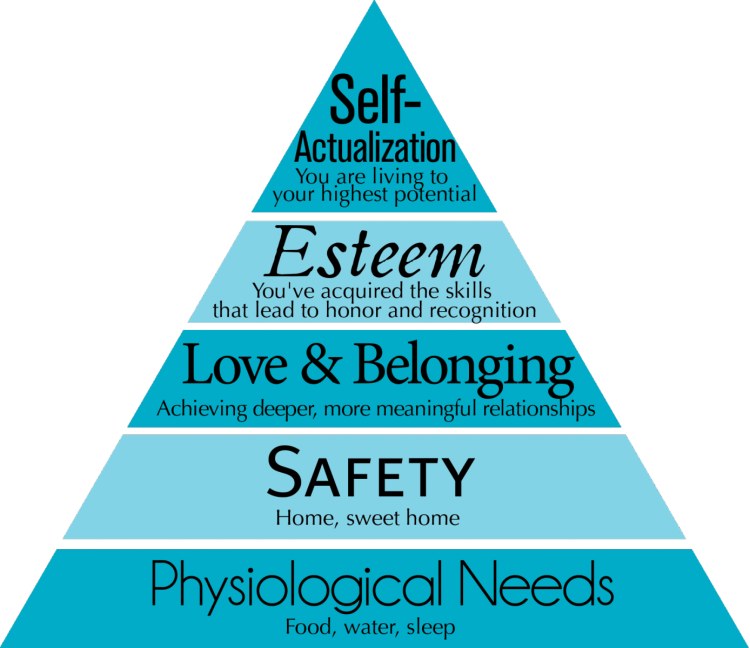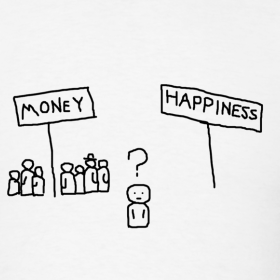Contact Center Attrition - Understanding Motivation (Part 1 of 3)
Supervisors and managers of contact centers are no strangers to the dreaded A-word attrition. Contact center work as an agent takes a strong position on the list of occupations that often feel like a thankless grind, and the burn-out rate - or attrition - makes that something not so easy to hide.
But why hide it or let it be? Why not seek ways to address the issue of attrition in contact centers?
At NocTel we dove into the underlying reasons and compared notes to conclude some of the lessons we learned are both surprising and not so surprising. This article shares our findings and suggestions to address the problem of attrition from a contact center-centric perspective, though much of what we found has varying degrees of commonality with other occupations and industries.
Motivating Factor
Humans are not too much different from other intelligent, self-aware creatures. We pursue things that make us feel safe, happy, or accomplished while avoiding altogether or minimizing exposure to situations that harm us, are detrimental, or otherwise unpleasant. For ages we have been keenly interested in what motivates people to do what they do and don't. For some, it's romanticizing the prospect of fame and fortune. For others, something simpler like making others happy makes them content. Yet others are motivated by the drive for superiority or to have what they currently don't.
For contact center agents, attrition is largely stemmed from the basic evaluation of cost benefit, which is the analysis we typically use for things in life big and small. Should I buy this expensive car even if I can't afford the monthly payment or insurance? Should I risk eating pizza and having a really awful time later when I don't have any lactase pills on hand? Should I invest in this particular company's stock after becoming aware of a major scandal? Should I plan my own wedding to save on costs knowing it will take more time and effort on my part? For each of these examples there is an implicit analysis: to do X or not to do X in order to gain Y or not have Z happen. What are the benefits associated with either deciding to do/pursue X or not? What risks are there associated with these options? Unsurprisingly, often times the benefit associated with doing or abstaining is the avoidance of a negative outcome. The word "benefit" carries a positive meaning we often interpret as gaining something or being better off because of it. However, when you consider consequences, the benefit itself doesn't have to leave you better off - it could be beneficial to avoid being worse off. Such is the case of clearing gutters and ditches before a rainy seasons comes. It may not be particularly enjoyable, but the benefit to doing so is the avoidance of flooding around the house and property. Doing this chore didn't make your home and property better off, but it did prevent it from likely being worse off.

Maslow's Hierarchy of Needs is typically depicted as a pyramid with each level denoting how fundamental the need is to survival and eventually self-fulfillment/contentness.
In regard to contact center agents in particular, this analysis plays into Maslow's Hierarchy of Needs. The motivation put into work at a contact center - or any occupation, really - often hits a peak at which monetary compensation and benefits become moot turning the focus on other aspects of the work and environment. Forbes' article on primary causes of attrition makes particular note that while most people have a price, meeting or exceeding monetary compensation isn't always a surefire method of improving retention rates long term.
What contact center agents often find lacking from the job in regard to motivation to stick around is recognition and belonging while being aware there is a presumed ceiling on compensation. Recognition and belonging fall squarely into two of the tiers of the pyramid formed in Maslow's Hierarchy of Needs, and a quick study of this pyramid lays human needs from bottom to top in order of necessities to survive leading to things that make us feel content with ourselves, others, and the world. Provided agents are not in dire straits such that their priorities necessitate focus on housing and basic living expenses, the higher tiers of Maslow's pyramid become more important despite being considered less integral to survival. In other words, agents don't feel like their daily efforts amount to anything when it becomes monotonous with no feeling of accomplishment or appreciation leaving predominantly negatives associated with keeping things as they are. However, it should be noted that if any layer of Maslow's pyramid are not met, it will cause dissatisfaction that undermines the importance of the other layers. For example, an employee that is generally happy at work may become disenchanted as they find the cost of living is rising while compensation is not. This jeopardizes the fulfillment of the very base level of Maslow's pyramid causing the more abstract upper layers to become destabilized as the employee out of necessity frets over how to make ends meet.
With a lack of perception that one's efforts are producing anything observable or being recognized, occupations such as contact center agent and even IT help desk quickly lead to burnout as the workload on a daily basis has a propensity to grow or experience "flare ups" in volume. Couple this with the fact in many instances, contact centers exist to address customer problems. More often than being complimented by a supervisor or customer, such individuals find themselves on the receiving end of criticism intended for the company or being ostracized for the agent, typically out of company policy, not meeting the customer's demands. One cannot ignore the taxing effect on the psyche this has on a daily basis and the negative feedback loop this creates for the agent. Where one is not recognized for their efforts or ordeals, one does not foster loyalty as the employees do not feel actualized in their efforts and roles. This demoralization is only exacerbated when the feedback received in their duties through customers may more often than not be negative.
Naturally, over time the cost benefit analysis boils down to "If I can find similar wages for employment elsewhere where I am more effective, making a difference, and overall feel better about what I do why should I stay here?" That is, the question of going or staying actually views the absence of the stress, lack of motivation, and workload as a benefit rather than an associated risk or cost for some other benefit - namely the benefits of recognition and belonging. As described by this article noting Carver, Scheier, and Higgins; it's entirely possible to evaluate the distance away from the undesirable (anti-goals) as being a benefit unto itself when speaking relatively of goals and circumstances today. This loops back to our earlier example about clearing the gutters and ditches in preparation for the rainy season. While you could certainly do nothing about it or take your chances, inaction makes the prospect of flooding (the anti-goal) more of a certainty than if put the effort in to avoid it.
Different Folks, Different Strokes

Not everyone is motivated by the same thing. Sometimes it's money, sometimes it's feeling valued.
While Maslow's Hierarchy does a good job describing most people, it doesn't explain everyone. As such, there will be employees who are motivated more readily at the prospect of tangible rewards or recognition that has a tangible reward associated with it. For such employees, a $5 gift card to someplace like Starbucks or an entry per "kudos" to a monthly or quarterly raffle can be more motivating than being appreciated or recognized with words and praise. While it may seem rude to most of us, such individuals may truly think "words complimenting me aren't visible proof I'm appreciated" and receiving personal or public praise may be valued equally as simply not being praised or being chastised with no actual punishment involved.
Of course, there are certain challenges associated with such motivation strategies. In particular, it necessitates accurate tracking of employee progress, rate at which employees are rewarded, and the honesty of employees at all levels such that the path to the reward isn't artificially more difficult or easy. The only thing worse than not addressing attrition is unreliably measuring its effectiveness, which if the measures by which a policy change are faulty then the entire premise can end up going out the window or at the very least coming under careful scrutiny in the future when policies are implemented.
The above sections suggest we can appeal to employees by assisting them in finding accomplishment and satisfaction in their role while defining a benefit. Future articles in this series will be examining methods of how you could implement systems and policies to improve the image of the workplace, employees' place and visibility in the workplace, reduce attrition, and monitor if your changes have been effective.
Acknowledging the Problem

Make sure the problem is acknowledged at all levels to ensure the goal is well-defined and the efforts to get there are supported.
Of course, "acknowledging the problem" means it's there, right? Not exactly. Acknowledging the problem of attrition as an issue with the serious intent of improving requires levels of authority within the organization share the concern and are ready to listen and make changes. This isn't always easy and at higher levels of management the disconnect between business performance metrics and the employees can occur. Not necessarily out of malice or apathy, but out of simply not being connected or aware.
Therefore you, as someone in the spectrum between an agent and management, need to consider how to effectively appeal for the better to both sides, which is admittedly not the easiest thing to do. Regardless of where in the organization you, dear reader, are located, the next step beyond acknowledging the problem of attrition is to gather unabashed opinion from as many individuals as you can. Be prepared to be surprised or swallow some uncomfortable realities and discern if the thoughts being relayed to you are earnest or self-perceived. Look for commonalities, press individuals for specificity of what displeases them or they wish to see, and also determine what degree of drift exists at all levels involved.
How easily it is to start this discovery and information gathering process is relative to your own organization. If employees feel as though their opinions really don't matter and they are simply to abide by policy, they may presume their honest opinions will end up in the trash anyway wasting their time. Conversely, if employees have some degree of trust in supervisors, they may more readily share their thoughts but have the expectation it will likely not amount to anything (accept their challenge and prove them wrong!). This may not be an easy task, but it is necessary to better understand the court you're playing in and can visibly affect what options for implementation are both reasonable and feasible. After all, if your only measure of the problem is your own perspective how can you be certain your solution will truly be effective?
In our next article on attrition, we'll explore some methods your organization can implement to make a difference.